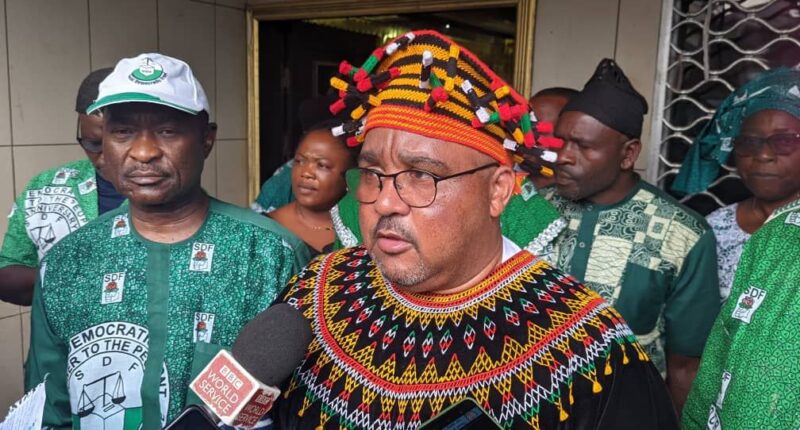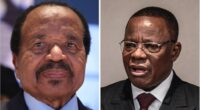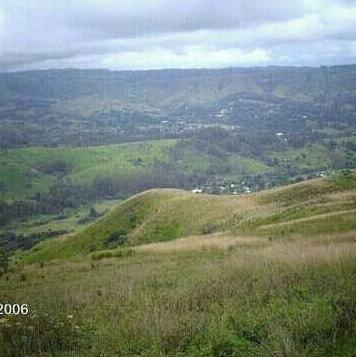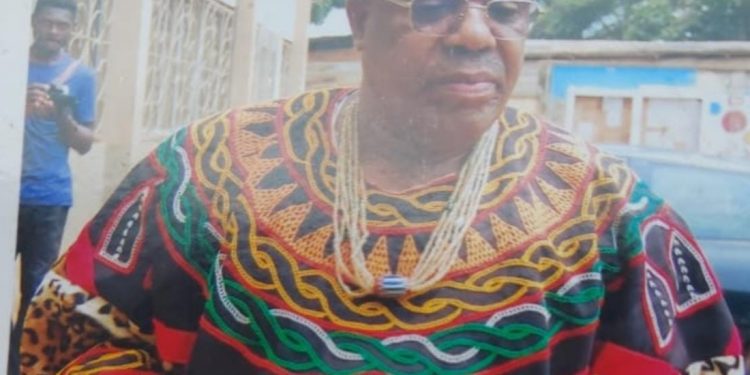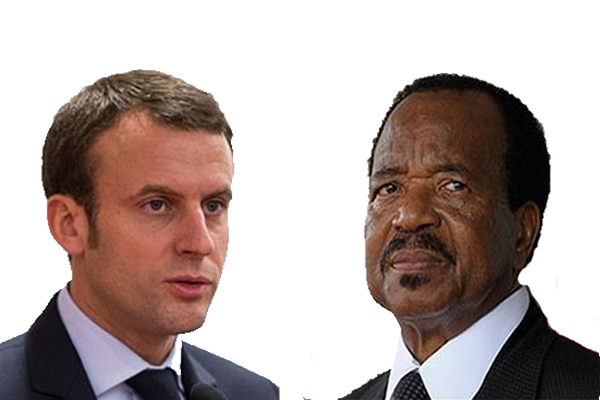Joshua Osih Calls for Ballots over Bullets in Anglophone Crisis: A Bold Vision or Political Rebranding?
By Andre Momo
In a powerful and emotionally charged statement delivered earlier this week, the Chair of Cameroon’s Social Democratic Front (SDF), Hon. Joshua Osih, extended a symbolic olive branch to Anglophone Cameroonians, particularly those engaged in the years-long armed struggle in the country’s troubled North West and South West regions.
“And to our Anglophone brothers and sisters – especially those who have taken the hard path of resistance – I hear you. I see you. I understand the pain of decades of marginalisation, of broken promises, of forced silence. But today, I offer you a new path… Where we do not seek separation, but recognition, respect, and justice within a nation rebuilt on truth and equality.”
This statement, although commendable for its tone of empathy and reconciliation, invites both cautious optimism and critical scrutiny given the turbulent history of the Anglophone crisis — a conflict that has claimed over 12,000 lives and displaced more than 1000,000 people since its escalation in 2017.
Context: The Anglophone Crisis – A War Rooted in Betrayal
The war in Cameroon’s English-speaking regions, often referred to as the Ambazonia conflict, finds its roots in deep historical grievances. Anglophones have long decried political marginalisation, cultural erasure, and economic neglect by the Francophone-dominated central government. The 1961 federation that gave birth to the current Republic of Cameroon promised a bicultural, bilingual system — a promise that was effectively dismantled by the centralisation of power under President Ahmadou Ahidjo and later Paul Biya.
The turning point came in 2016 when peaceful protests by Anglophone lawyers and teachers demanding fairer treatment were met with violent repression. This triggered the rise of armed separatist groups calling for the restoration of the once-autonomous Southern Cameroons under the name Ambazonia. The government’s response has been a protracted military campaign marked by accusations of human rights violations, including arbitrary arrests, extrajudicial killings, and the burning of entire villages.
A Call to Lay Down Arms – A Moment of Truth or Political Calculus?
Joshua Osih’s appeal for a “new era” signals a potential recalibration of opposition politics in Cameroon. His emphasis on using ballots instead of bullets, and the shift from separatism to justice within a unified state, seems to reject both the government’s militarised response and the separatists’ quest for total independence.
However, the statement raises several critical questions:
-
Why now? Osih’s speech comes at a time when the SDF is struggling to retain political relevance. Once a formidable opposition force, the party has seen a sharp decline in influence, especially in the Anglophone regions where it once had deep roots. Is this a genuine turn towards peace, or a strategic attempt to reclaim lost political ground?
-
What guarantees exist for a political solution? Despite past calls for dialogue — including the much-criticised 2019 Major National Dialogue — the government has shown little willingness to implement deep structural reforms. Without constitutional guarantees for decentralisation, language rights, and local governance, how can ballots realistically address the underlying issues?
-
Is the separatist leadership listening? Many in the Ambazonian movement have grown increasingly distrustful of both Yaoundé and opposition figures they view as collaborators. Without credible channels of engagement or third-party mediation, it’s unclear whether Osih’s words will resonate with the armed groups or diaspora leadership.
The Rhetoric of Unity – Powerful Words, Fragile Foundations
There is undeniable power in Osih’s language — he acknowledges the decades of “forced silence” and “broken promises”, and for once, an opposition leader explicitly recognises the legitimacy of Anglophone pain. This is a rhetorical departure from both the government’s denialism and the often dismissive tone of Francophone political elites.
But reconciliation demands more than empathy — it requires institutional action. How will the SDF advocate for justice in Parliament? Will they push for federalism, long viewed by Anglophones as the only viable path to coexistence? Or is this simply a softer version of the government’s one-state policy?
A New Chapter or More Political Pageantry?
Joshua Osih’s speech may go down as a pivotal moment in Cameroonian politics — a moment when a major opposition figure dared to speak directly to the separatists with a message of recognition and reintegration. But the burden of proof remains heavy.
Cameroonians — especially in the Anglophone regions — have heard lofty promises before. Without concrete steps toward truth, accountability, and reform, Osih’s vision of ballots over bullets risks being remembered as yet another missed opportunity in a long history of broken bridges.
For now, the guns have not gone silent — but perhaps, just perhaps, someone has started talking sense.
